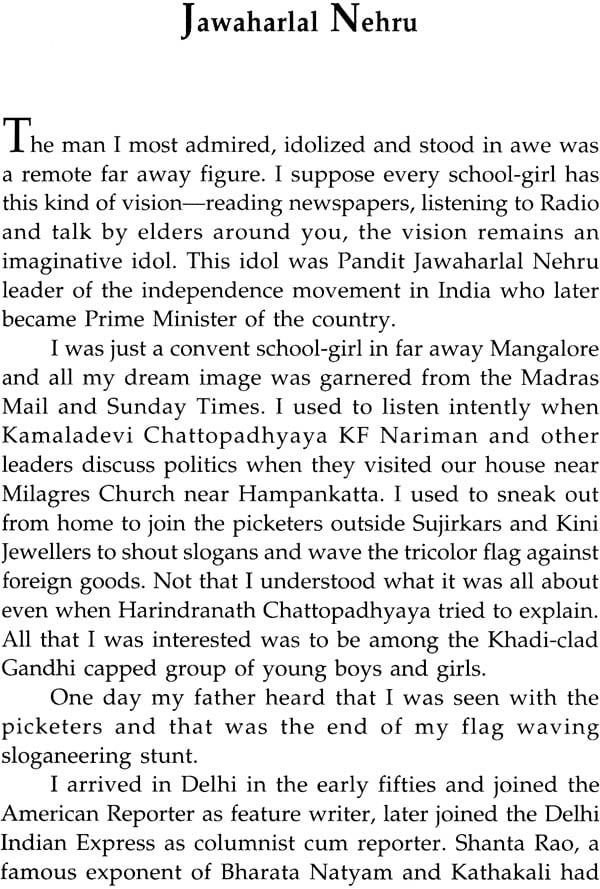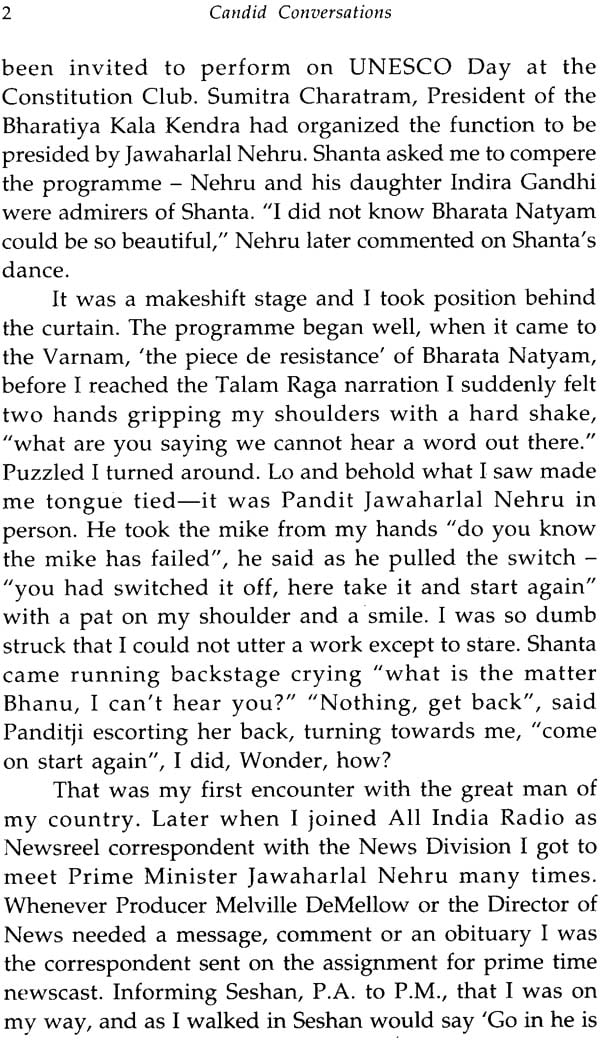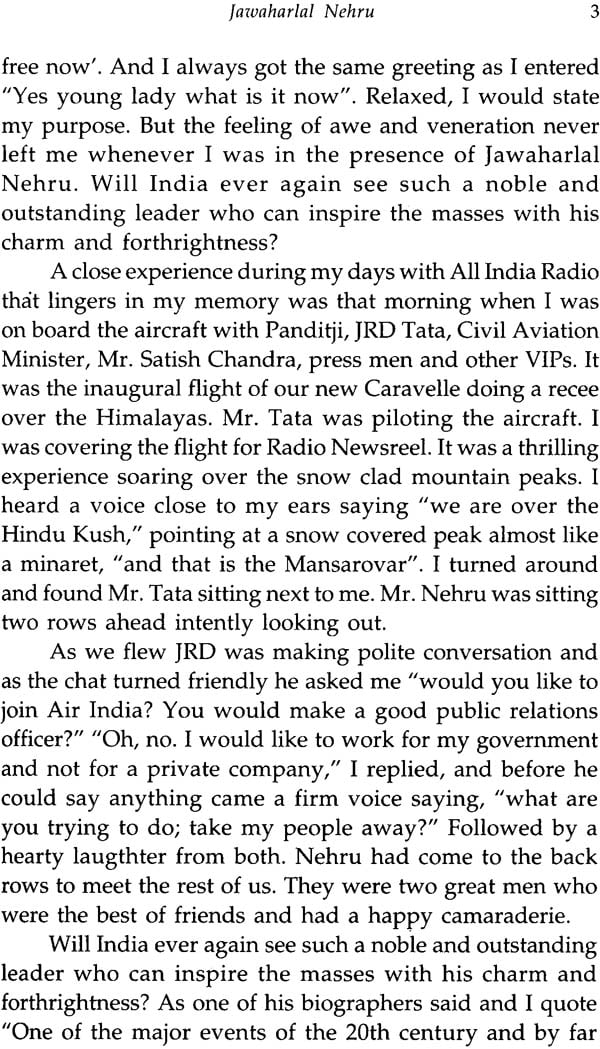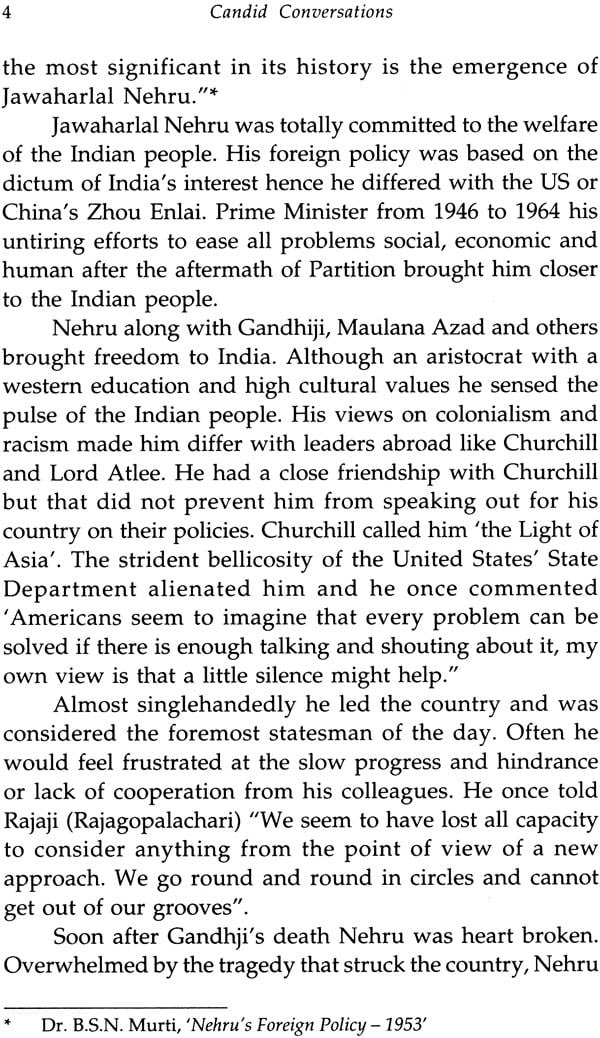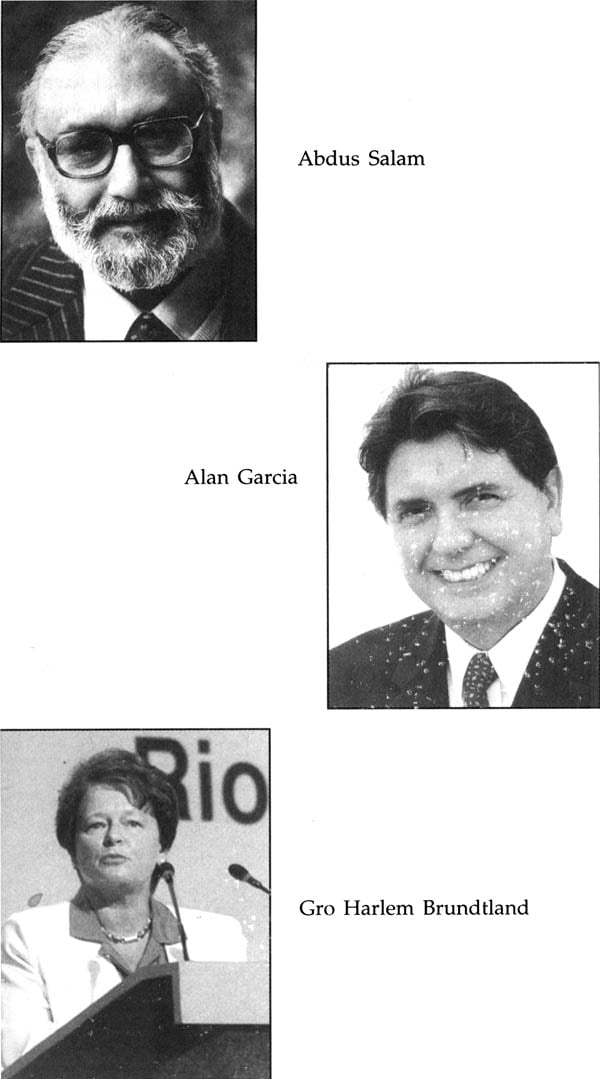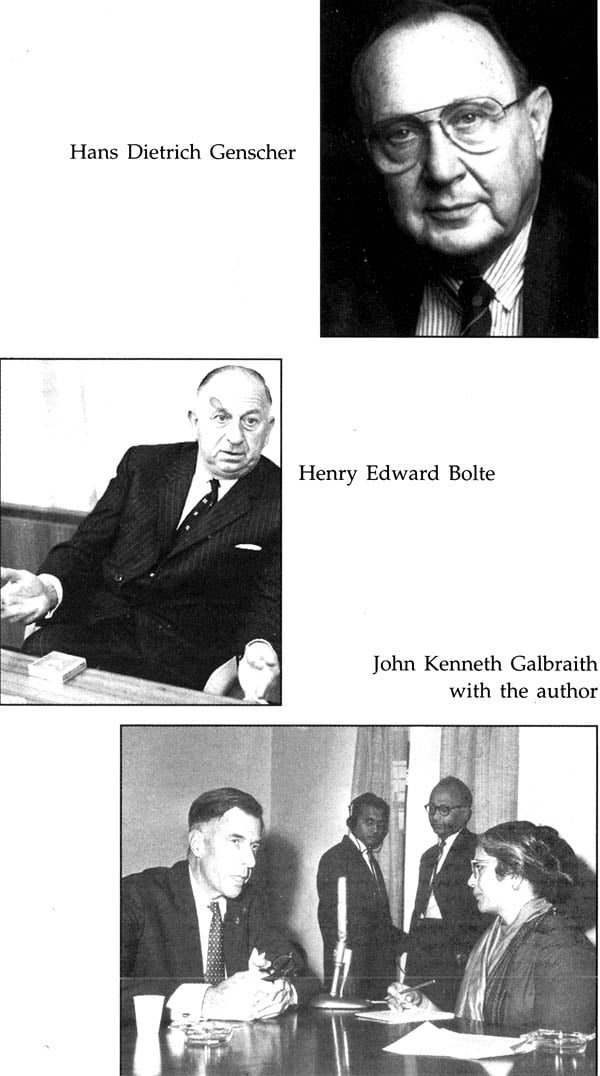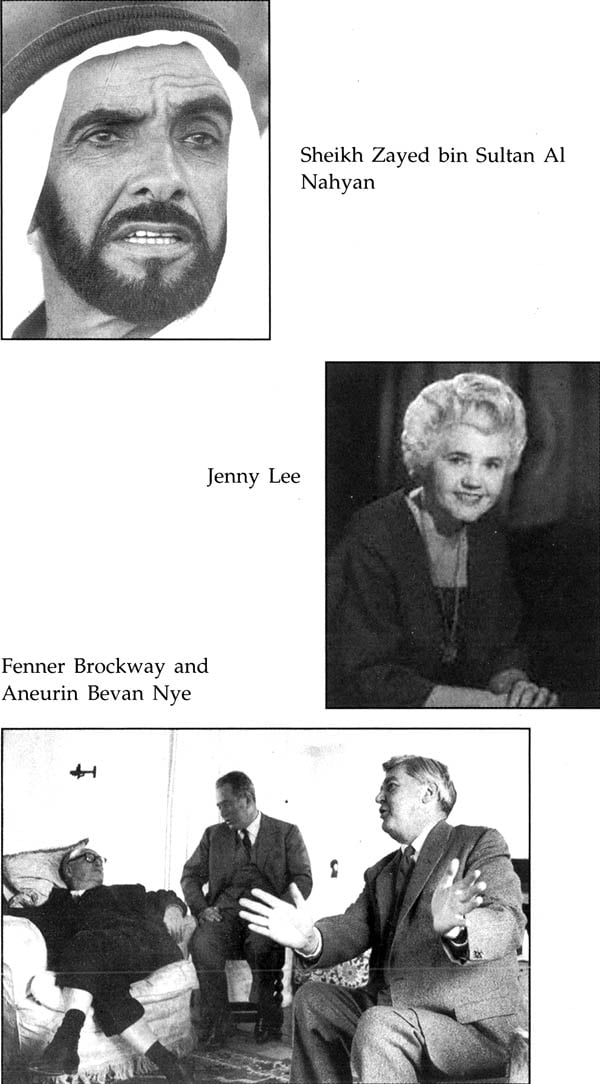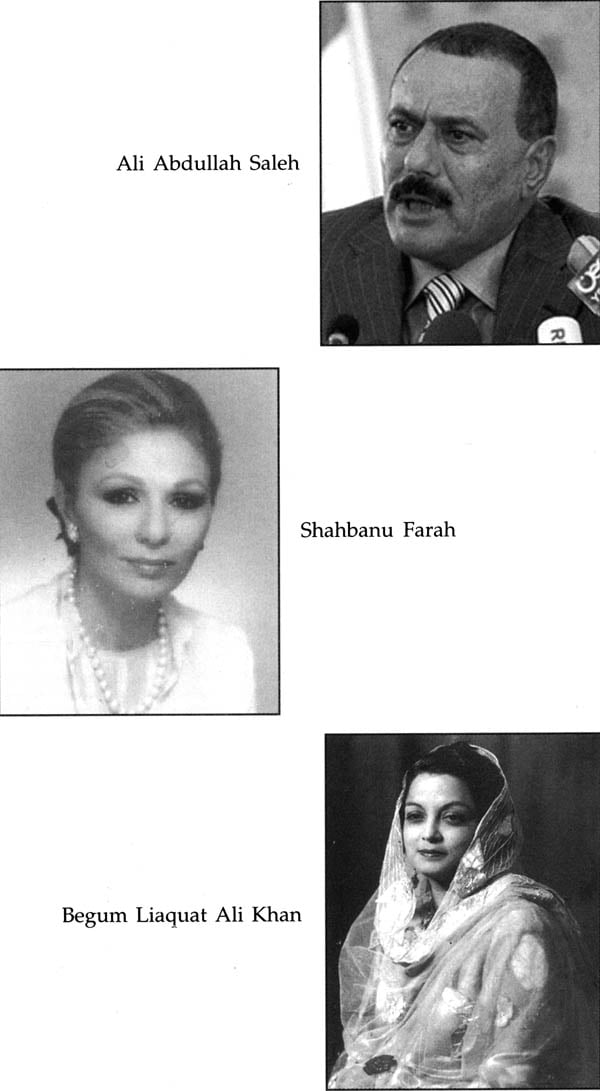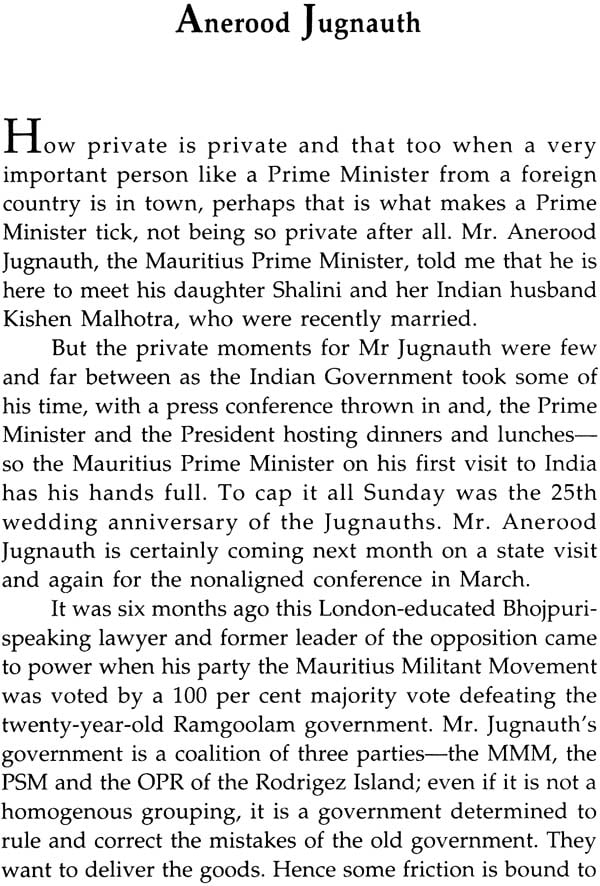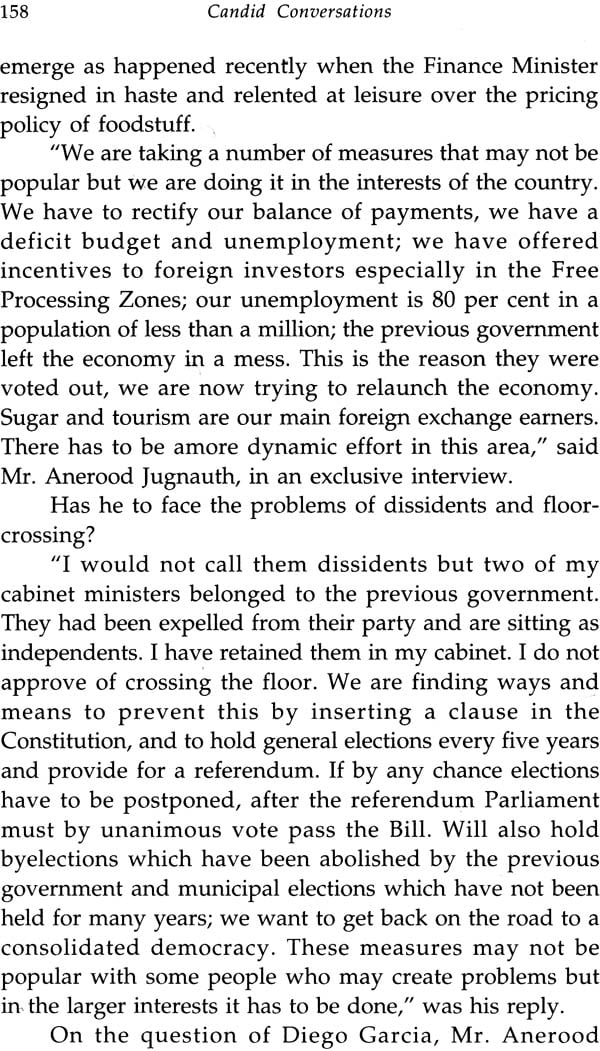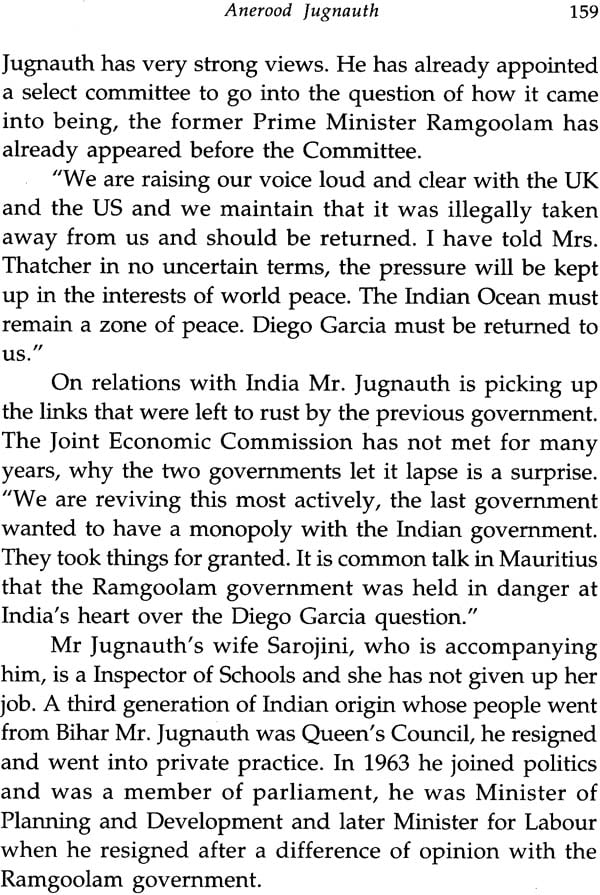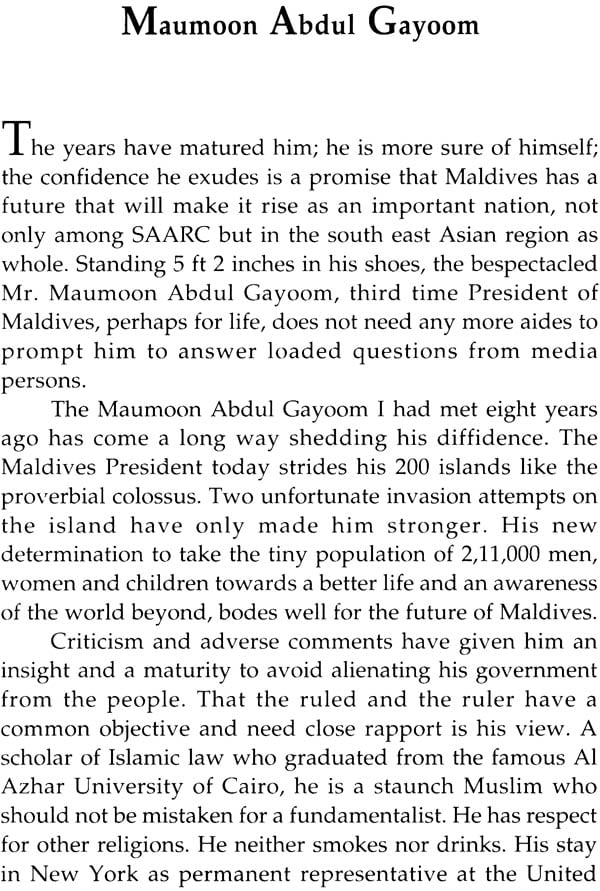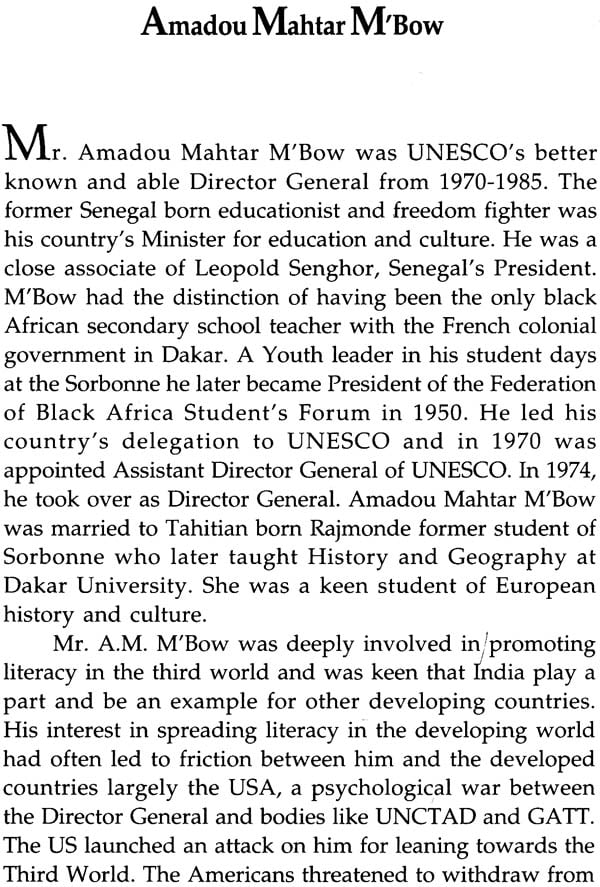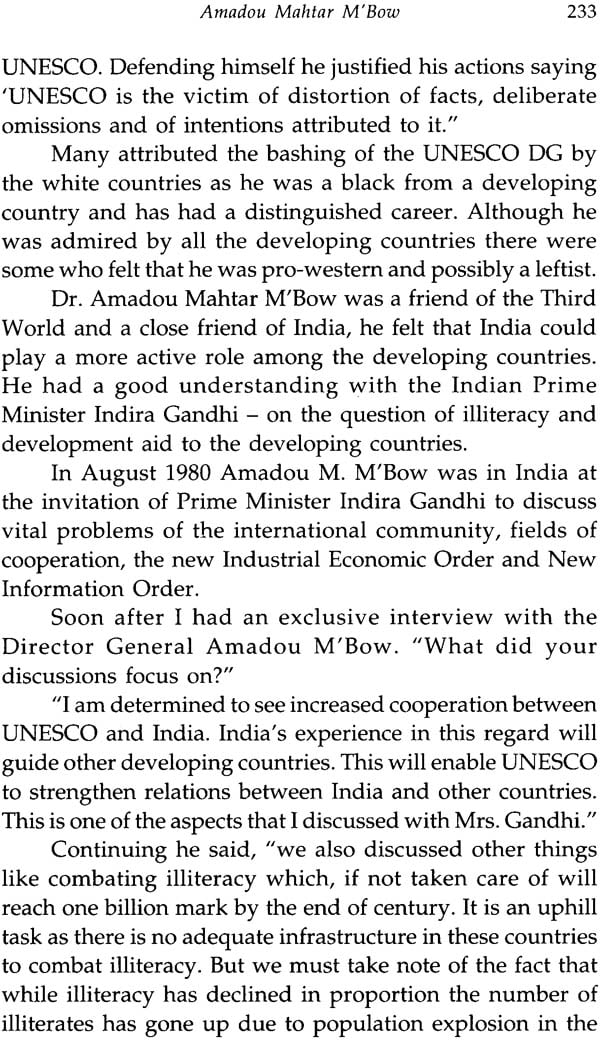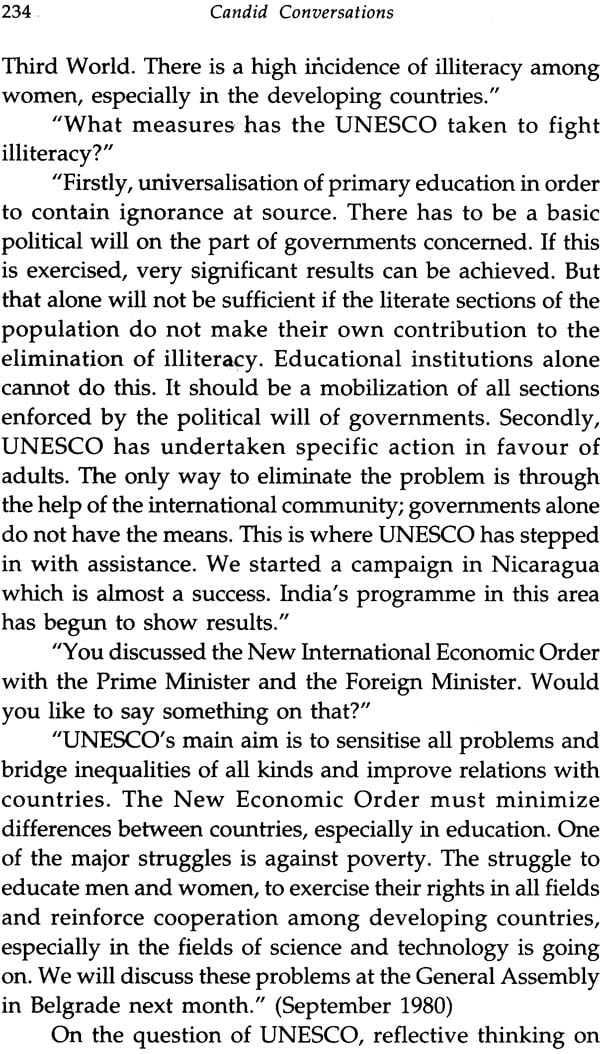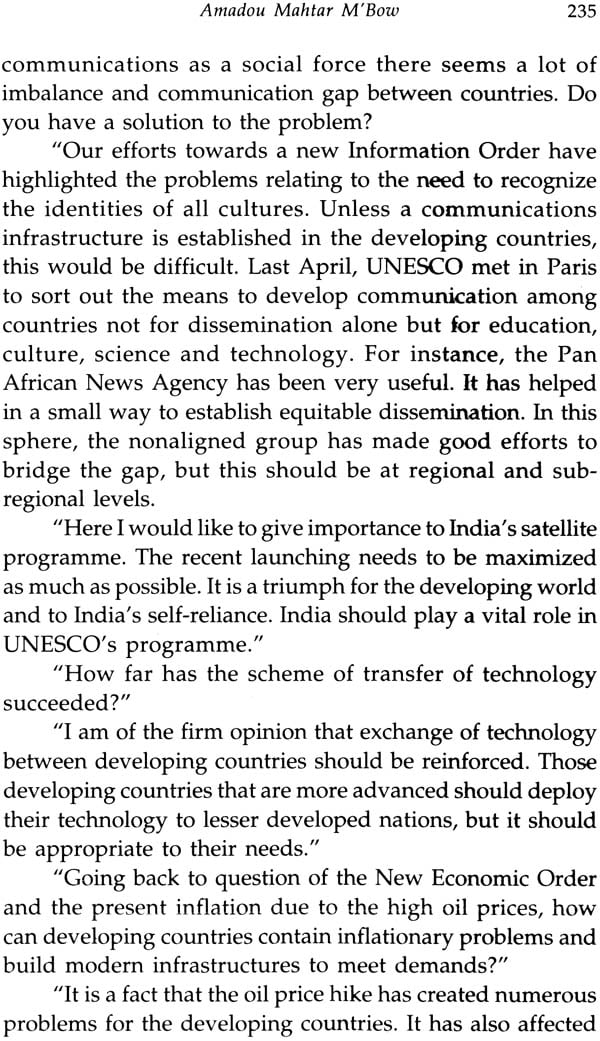
Candid Conversations with Towering Persons
Book Specification
| Item Code: | IDJ898 |
| Author: | K. P. Bhanumathy |
| Publisher: | National Book Trust, India |
| Language: | English |
| Edition: | 2007 |
| ISBN: | 9788123794334 |
| Pages: | 245 (Black & White Illustrations: 58) |
| Cover: | Hardcover |
| Other Details | 8.5" X 5.3" |
| Weight | 410 gm |
Book Description
Back of the Book
This is a collection of interviews of major personalities of modern times. They include a galaxy of men and women ranging from national figures and international leaders to writers, thinkers, diplomats and Nobel laureates. Erudite and entertaining, these conversations bristle with the eloquence of the individuals as well as the author's skill in drawing them out. A fascinating read, this collection brings to the reader an exciting period of history that has just gone by.
K.P. Bhanumathy, journalist and former correspondent of All India Radio, was also a popular columnist. Her columns have appeared in major national newspapers including National Herald Times of India, Hindustan Times, The Hindu and The Statesman. Widely travelled, Bhanumathy was particularly known for her fascinating interviews during a long career spanning over five decades.
Preface
K. P. Bhanumathy has had varied experience in her journalistic career as a feature writer and columnist and, particularly, as an interviewer of the great and the good. She has worked both in print and in broadcasting and it was particularly during her stints with All India Radio in the days before television came to India that she proved her mettle.
The result is a treasure trove of interviews of men and women who have left their imprint on history. They range from such national icons as Jawaharlal Nehru and Indira Gandhi, Homi Bhabha and Satyajit Ray to international path-blazers -Zhou Enlai, Ho Chi Minh, Che Guevara and Olof Palme.
I am delighted that Bhanumathy has decided to bring them together in book form, unvarnished by afterthought. They represent a fascinating source of material for historians and researchers because they tell us what men and women who made history thought in the prime of their lives.
Foreword
It was nearly half a century ago - in October 1958, to be precise - when I first met K.P. Bhanumathy and saw her at work, as a fellow - journalist. The occasion was the annual conference of the World Bank and the International Monetary Fund (IMF), which took place in New Delhi for the first and so far only, time. 'The Fund-Bank Meet' we used to call it, and it was invested with the highest importance for obvious reasons. India was then desperately short of funds in general and of foreign exchange in particular, and therefore, needed every penny it could squeeze out of the two financial world bodies. As it happened, at that time this country was also the biggest beneficiary of the World Bank lending. In fact, the genial chief of the Bank's PR establishment said to me that the bank had temporarily been nicknamed 'International Bank for Reconstruction and Development of India' though he was good enough to concede that it ought to make the terms of its aid to India 'softer', which was later done only up to a point.
Under these circumstances it came as no surprise that the monetary czars and custodians of caches of cash belonging to rich and powerful countries were made much of. There was no TV then, only the print medium.
However, the newspapers competed furiously for exclusive interviews with the more prominent of the chief delegates. This was not always easy because these worthies were kept busy from morning to midnight not only in meetings that dragged on much beyond the allocated time but also at a plethora of lunches, dinners and cocktail parties in their honour. Even so, the enterprising reporters got what they wanted largely because the distinguished guests were not unaware of the benefits of publicity. In the scramble for interviews, Bhanumathy had an edge over others. For, she was interviewing on behalf of All India Radio and honchos of high finance knew that it would carry their voice to the widest audience. Nor was she a novice at the game. She had joined the profession some seven years earlier, writing for an array of newspapers, including The Statesman, for which I was working then, on subjects ranging from foreign policy to classical dance. Since then she has come a long way, traveling across the world, covering international conferences galore, writing profiles or obituaries of world leaders and so on. However, interviewing distinguished men and women, especially those with solid achievements to their credit, has remained her forte, and she has always stuck to her self-imposed high standards.
Interviewing people in power and office, especially in extremely limited time, and getting worthwhile copy from it, is by no means as simple as it might seem. Both the interviewer and the persons interviewed have their problems. Some of the latter can be taciturn to the point of the interviewer's despair. Others can be so garrulous and longwinded that the entire exercise drowns into verbiage. Some others - of whom Morarji Desai was the prime example - tend to answer every question by a counterquestion.
Bhanumathy, however, has always had the knack of asking precise questions and gently nudging her quarry to stick to the point. Her opening gambit is usually thought out carefully. I remember one still. At the time of the FundBank jamboree, the world used to speak of the "German Economic Miracle" with the kind of admiration and awe currently reserved for China's phenomenal rise. The author of West Germany's Great Leap Forward was Ludwig Erhard, then finance minister and vice-chancellor and later Chancellor, chased by everyone who had a Press card. "Sir," Bhanumathy asked him, "Are you the wizard? And would you tell us the secrets of your success." The big, burly, brainy and somewhat aloof Erhard was charmed and embarked on a short and succinct discourse on his economic policy.
No wonder then that a selection of the huge number of interviews to her credit over the years forms the core of this book. Its contents are enriched by the erudition and eloquence of the eminent individuals interviewed, and by the author's skill in drawing them out. To mention the names of only a few of the movers and shakers whose words adorn the subsequent pages is to underscore that the choice is impressive to the point of being intimidating. What else can one say about a list that includes almost all Indian Prime Ministers from Jawaharlal Nehru to Atal Behari Vajpayee, Presidents Radhakrishnan and R. Venkatraman, and such towering world leaders as Ho Chi Minh, Zhou Enlai, Che Guevara, Clement Attlee, Aneurin Bevan, Willy Brandt, Olof Palme, Yitzak Rabin, Lee Kuan Yew, Leopold Senghor and a host of others of comparable stature?
Yet Bhanumathy's emphasis is not on politics and politicians alone. There is also another category that embraces such luminaries as Buckminister Fuller the polymath; the Pakistani Nobel Laureate in physics, Abdus Salam; Vikram Sarabhai; John Kenneth Galbraith; Gunnar Myrdal; and Pierre Cardin. The galaxy of women she has chosen to talk to for the record could not have been more glittering. Apart from Indira Gandhi, Sirimavo Bandaranaike, Begum Liaquat Ali Khan and Mrs. Sun Yat Sun, it includes, again to name only a few, Agatha Christie, Han Suyin, Mrinalini Sarabhai and Aruna Asaf Ali.
It is necessary to recognize, however, that to the younger generation reading this volume - and perhaps even to their elders - many of the prominent persons appearing in the book may be unknown. This is what accentuates the value of the publication. For, it brings to the present day reader both the essence and the flavor of an era that has gone by but is very germane to the history of the second half of the twentieth century with which we all must be familiar. To go through it, I am sure, would be both educative and entertaining.
| Preface | ix |
| Foreword | xi |
| Author's Note | xv |
| Jawaharlal Nehru | 1 |
| Indira Priyadarshini Gandhi | 9 |
| Jigme Dorji Wangchuck | 15 |
| Jigme Singye Wangchuck | 19 |
| Ernesto 'CHE' Guevara | 28 |
| His Holiness the Dalai Lama | 32 |
| Zhou Enlai | 38 |
| Ho Chi Minh | 42 |
| Vijay Laxmi Pandit | 48 |
| Rajiv Gandhi | 54 |
| Yitzhak Rabin | 59 |
| Carlos P.Romulo | 64 |
| Helmut Schmidt | 66 |
| Olof Palme | 69 |
| Mario Soares | 73 |
| Georges Andre Malraux | 78 |
| Willy Brandt | 82 |
| Ralph Bunche | 86 |
| Gunnar Myrdal | 90 |
| Leopold Senghor | 94 |
| Vikram Sarabhai | 99 |
| Mrinalini Sarabhai | 102 |
| John Kenneth Galbraith | 105 |
| Abdus Salam | 109 |
| Alan Garcia | 113 |
| Fenner Brockway | 115 |
| Aneurin Bevan Nye | 118 |
| Jenny Lee | 122 |
| Gro Harlem Brundtland | 125 |
| Hans Dietrich Genscher | 129 |
| Henry Edward Bolte | 132 |
| Sheikh Zayed Bin Sultan Al Nahyan | 135 |
| Ali Abdullah Saleh | 138 |
| Shahbanu Farah | 145 |
| Begum Liaquat Ali Khan | 150 |
| Razali Ismail | 154 |
| Anerood Jugnauth | 157 |
| Maumoon Abdul Gayoom | 160 |
| Fuad Mohieddin | 163 |
| Julius Nyrere | 170 |
| Aruna Asaf Ali | 174 |
| Judith Hart | 177 |
| Sultan Bin Salmaan Al-Saud | 182 |
| Han Suyin | 185 |
| Muhammad Yunus | 188 |
| Sirimavo Bandaranaike | 192 |
| Zia-ur-Rahman | 198 |
| Junius Richard Jayewardene | 201 |
| Daw Khin Kyi & Aung San Suu Kyi | 204 |
| Richard Buckminister Fuller | 208 |
| Boutros Ghali | 214 |
| Helvi Sipila | 217 |
| Prince Bernard | 220 |
| Julius Chan | 223 |
| Agatha Christie | 226 |
| Habib Bourguiba Jr. | 229 |
| Amadou Mahtar M'Bow | 232 |
| Germain Krull | 237 |
| Pierre Cardin | 241 |
| Margaret Lee Runbeck | 244 |
